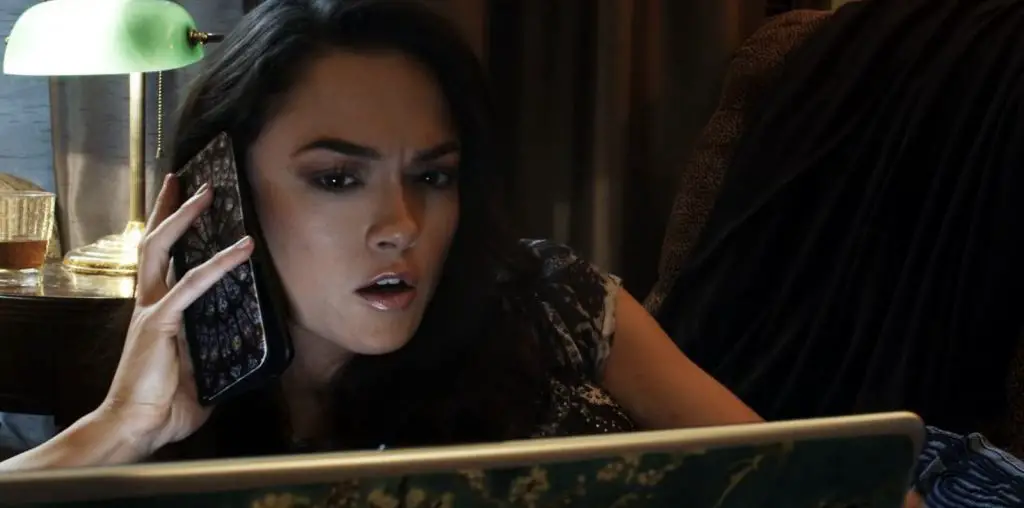
Screw personal computers.
In Will Smith’s new futurist-adventure I, Robot, laxly based on the classic science-fiction book by Isaac Asimov, everyone’s favorite new appliance is the personal robot. Designed to make life easier and keep us all out of danger, robots, in the year 2035, have become cool, commonplace and affordable. Unfortunately, a new upgrade bot, the NS5, is about to be released, and the entire product line is planning to take over the planet, all in the interest of better serving mankind.
Author Wylene Dunbar was entertained enough by “I, Robot”, but after catching the film during a book-signing excursion to Berkeley, she can’t help but notice a few similarities between this and the last movie she saw, Michael Moore’s still-hot Fahrenheit 9/11.
“Really, it was like watching the same movie!” Dunbar laughs. “I couldn’t believe it! Both films are scary, and both films are about all the ways that technology can be manipulated and used to take away a population’s freedom and its humanity.”
Dunbar, of Nevada City, California, has been a teacher of philosophy and a practicing lawyer. Currently, she’s an award-winning novelist (Margaret Cape) whose latest work is the breathtaking, brain-bending new novel My Life With Corpses (2004, Harcourt, $24.00). Narrated by a probing Kansas philosophy professor known only as Oz, Dunbar’s uncategorizable mystery-koan-fairytale begins with the story of Oz’s eerie rural childhood, she being the only living member in a family of walking, talking corpses. Decades after Oz’s rescue and semi-successful assimilation into living society, she returns to the scene of those awful early years, provoked—by a message from beyond the grave, it seems—into finally examining what it means to be dead and alive. Just as Dunbar sees similarities between Smith’s high-performance robo-flick and Moore’s ballsy propagan-doc, she’s observed a number of ideas in “I, Robot” that share My Life With Corpse’s ideas about the meaning and significance of being a non-corpse human.
“They both ask a lot of questions about consciousness, don’t they?” she remarks. (Dunbar, for that matter, also asks a lot of questions, not unusual, one would suppose, for a trained philosopher). “What is the role that consciousness plays in being alive?” she posits. “That’s one of the things that the robot movie is asking, and certainly what Oz is asking in Corpses. What does it mean to be alive? Is life defined solely by the proof of biological functioning, or can be functioning as an organism and still somehow not be alive? Once we settle on a definition of what it means to be alive, then we can answer the question about whether robots are alive, or whether they’re just machines.
“And consciousness,” she goes on, “always seems to be a part of the answer. Feelings and emotions go with being conscious, with being aware, with being able to take in information and have it affect you in a certain kind of way. What’s the difference between a robot, who hears a voice and acts in response, and a human being who hears a voice and acts the same way? Other than the fact that a human bleeds and a robot doesn’t, what’s the difference? If we invent robots in the future who do bleed, how do we make the moral distinction between humans and robots?”
At a loss as to which of these questions I should try to answer first, I instead toss Dunbar one of my own, challenging her to speculate on the degree to which freedom, or the illusion of freedom, is wrapped up in our sense of our own human-ness.
“That’s a good question,” she says. “I think most of us would say it’s pretty important, so it’s ironic, isn’t it, that in the robot movie, the robots are becoming more human, exercising more freedom, while their presence is taking away and denying us, the humans, those very things that we consider most important about being human.”
Hmmm, sort of like the way the Patriot Act, marketed as a way of protecting America, is actually erasing the very freedoms we consider most central to being American. Wow, I see the connection! So, this is what happens when you introduce a liberal, law practicing, novel-writing philosophy-professor to a movie about walking toasters.
And with that, we have returned to our original topic of conversation.
“In ‘Fahrenheit 9/11’,” Dunbar says, “the people in power are using the media to control the information that gets out, so as to manipulate the population, while the ordinary person has no idea that they are being manipulated, has no idea how their freedoms are gradually being eroded away. And in ‘I Robot’, it’s the same thing really, where technology is being cleverly used to secretly manipulate the human population, and to get everything ready for the robots to take control.”
As I silently wonder whether robots, given the choice, would skew Republican or Democrat, Dunbar sets up her next point, reminding me that in “I, Robot”, the robot manufacturer’s ad campaign promises to put a robot in every American house. Robots to take out the trash, walk the dog, and deliver our mail, and also to protect us from danger, to rescue us should our Audis go off a bridge, to fetch our high-tech inhalers when we’re having a futuristic asthma attack.
“It’s the safety thing,” she says. “Remember the psychiatrist in ‘9/11’ who talks about how effectively the color-coded safety alerts are being used to keep everyone off balance and fearful? That’s very effective as a psychological technique, to make people pliable and willing to give up their freedoms, because when people are afraid you can talk them into almost anything. In the robot movie, the robots are marketed to people as being all about safety. The robots are there to protect you, to look out for you in all the ways we’d like the government to be looking out for us.
“That’s always been the allure of letting the government further into our lives,” she adds. “It’s kind of like never having to leave home, ‘cause you’ll still have mama and daddy. I do recognize why people would be susceptible to wanting the government to keep ‘em safe and sound, and would be willing to give up a few things for that. That susceptibility is being looked at in “I Robot”, I think, and the same thing is being alleged in “Fahrenheit 9/11”.
“And in both movies, the message is the same,” Dunbar insists, ”and that message is—we’d all better keep our wits about us. Technology—like certain governments—can make it seem so easy and so comfortable and so safe to get by without having to use our wits, we might become so accustomed to letting a machine or a politician do our thinking for us, that pretty soon we don’t have any wits left at all. Now that’s scary.”
____________________________________________________________
Writer David Templeton takes interesting people to the movies in his ongoing quest for the ultimate post-film conversation. This is not a review; rather, it’s a freewheeling, tangential discussion of art, alternative ideas, and popular culture.
Discuss David Templeton’s “Talking Pictures” column in Film Threat’s BACK TALK section! Click here>>>

